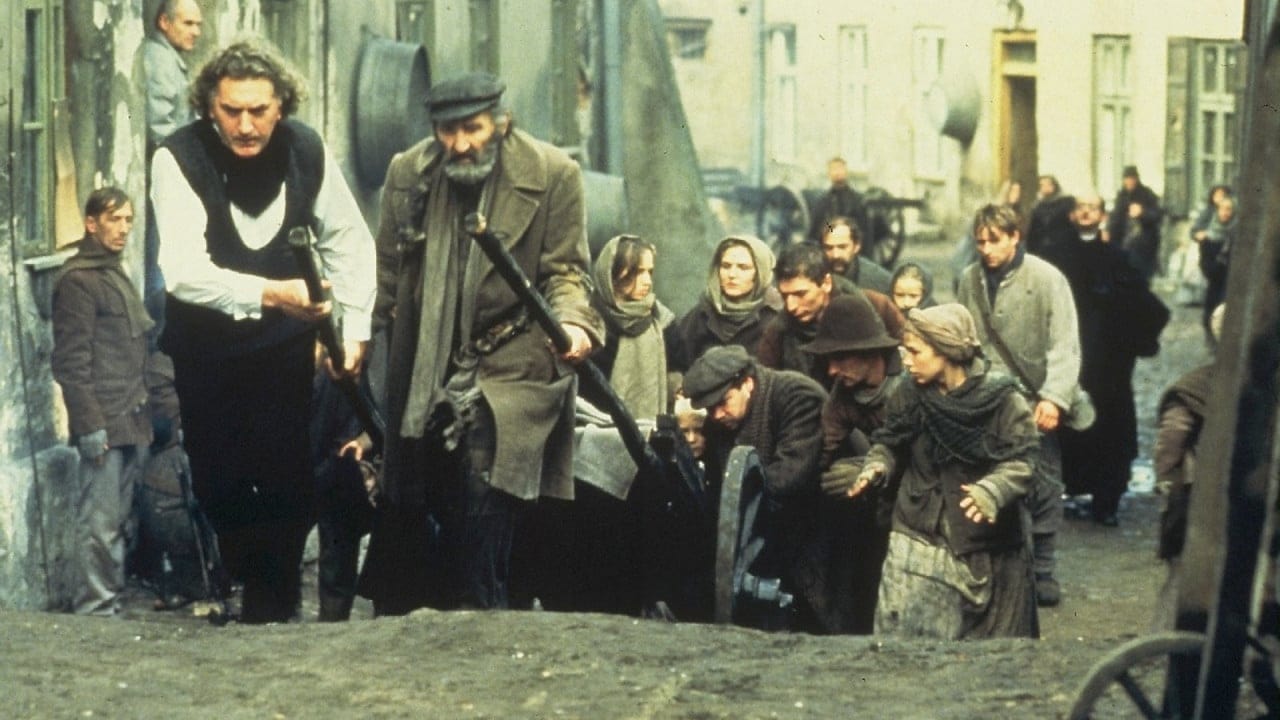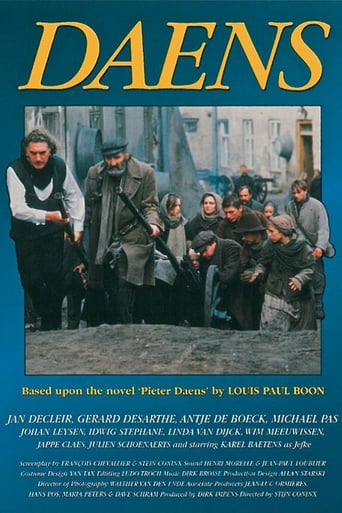

Beautiful depiction of the workers' fate during the first half of the 20th century. Priests and church are supposed to play their role of keeping the workers at peace. When father Daens resists he gains such a response that the powers have to bend. True story! Went up for an Oscar but due to the fact that the French had a lot more money to support their film it fell short. Brilliant role for Jan Decleir, mostly known for his one-man plays, adaptations of Dario Fo. Proof you do not need violence or sex to make a movie exciting. What is needed is a strong story (very much so in this case) and a couple of great actors. If you have the chance to watch it, do so, it will alter your view on the world, there are not enough (nice) movies of this kind around. Again: it all happened as it is depicted here.
... View MoreThis movie shows how life was in the late 19th century. I come from Aalst and Daens was and still is a highly respected priest who cared for the poor and who wasn't afraid of those rich mother******* and the corrupt, pathetic (it still is) church.Together with his brother he faced and defeated the rich. He helped the poor people and got them the right to vote. In his quest he the pope and all who were against him eventually took away his rights as a priest. Daens continued to help the poor, and became the voice of the people in the parliament. He was a good man who stood up for the poor. The movie itself gives a very good look how people worked their asses of for only a few CENTS.
... View MoreThe priest Daens (Jan Decleir) and his political master Charles Woeste (Gérard Desarthe) are opposing each other in this historical movie. Daens is a strong priest, convinced of his rightfulness to protect the workers. In the movie everything is worked out in detail and you can easily identify with the characters. The music is not so good and a little bit soft but the dramatic script keeps our attention until the end.
... View MoreJan Decleir stars as the real-life populist preacher Father Daens, who helped textile workers in Europe struggle for justice in the late 19th century. This is a very moving and powerful film which squarely takes on many problems which our modern industrial societies have inherited from the Industrial Revolution.Especially heartbreaking and infuriating are the scenes which juxtapose young factory children being overworked, abused and mangled by the textile machines with rich and powerful nobles around their sumptuous dinner tables. The emotional high point of the film, for me, came when Daens gives an impromptu speech in a church, shouting out, "People scream, 'we are hungry!' Loud and clear!" It is difficult not to be emotionally caught by such a scene.Father Daens ultimately shows in this film what Gandhi told someone: that one's religion is in one's actions, not in one's words, clothes or wealth.
... View More